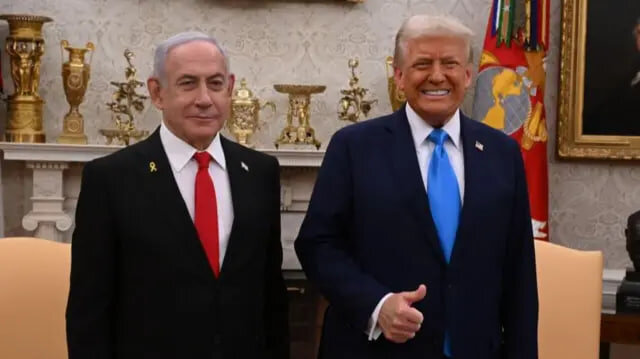Trump’s Tariff Threats Spark Tension as EU Promises Strong Counteraction
In a recent statement, US President Donald Trump has suggested that the European Union (EU) may soon be subject to tariffs, following his recent imposition of a 25% levy on goods from Mexico and Canada, as well as an additional 10% tax on imports from China. This potential move could significantly impact international trade dynamics.
While speaking to the BBC upon his arrival in Maryland from Florida, Trump expressed his concerns about the EU’s trade practices. He stated, “They don’t take our cars, they don’t take our farm products, they take almost nothing and we take everything from them. Millions of cars, tremendous amounts of food and farm products.”
Trump’s remarks highlight the ongoing tensions in trade relations between the United States and various global partners. Here are some key points regarding the current situation:
- Potential Tariffs on the EU: Trump indicated that tariffs on EU goods could be announced “pretty soon.”
- Trade with the UK: The US President mentioned he has “good relations” with British Prime Minister Sir Keir Starmer, suggesting that trade issues with the UK might be resolved amicably.
- No Set Timeline: When queried about the timeline for implementing tariffs on the EU, Trump replied, “I wouldn’t say there’s a timeline, but it’s going to be pretty soon.”
The European Union, comprising 27 member states, has responded strongly to Trump’s recent tariff decisions. They have condemned the actions against Canada, Mexico, and China and warned that they would “respond firmly” if the EU becomes a target of similar tariffs.
Retaliatory measures are already on the table from affected nations. Mexico and Canada have vowed to respond to the tariffs imposed on them, while China has stated that it could enact “corresponding countermeasures.”
During the discussion about trade relations, Trump remarked on the current state of trade with the UK, saying, “The UK is out of line. But I’m sure that one, I think that one, can be worked out.” This statement reflects the delicate balance the US is trying to maintain with its allies while addressing trade imbalances.
However, the economic implications of such tariffs have raised concerns among experts. Many economists are warning that these tariffs could lead to increased prices for American consumers. The potential rise in costs could discourage domestic consumers from purchasing certain goods, ultimately affecting the US economy.
Furthermore, there is a fear that imposing tariffs could encourage other countries to seek alternatives to US goods and services, thereby reducing their reliance on the United States. This shift could have long-term ramifications for American exports and the global market.
In light of these developments, it is crucial for stakeholders to monitor the situation closely. Here are some potential outcomes to consider:
- Increased Costs for Consumers: Tariffs might lead to higher prices for everyday goods, impacting the average American household.
- Retaliatory Tariffs: Other nations may respond with their own tariffs, which could escalate trade tensions further.
- Shifts in Global Trade Patterns: Countries may seek new trading partners, reducing their dependency on US markets.
- Impact on American Jobs: Industries reliant on exports could suffer, leading to job losses in specific sectors.
As the situation develops, it will be essential for both the US government and international trade partners to engage in dialogue to mitigate the risks associated with these tariffs. The goal should be to foster a balanced trade environment that benefits all parties involved.
In conclusion, President Trump’s hints at potential tariffs on the EU signal a significant shift in international trade relations. As we await further developments, the implications for American consumers and businesses remain a critical concern that warrants close attention.






